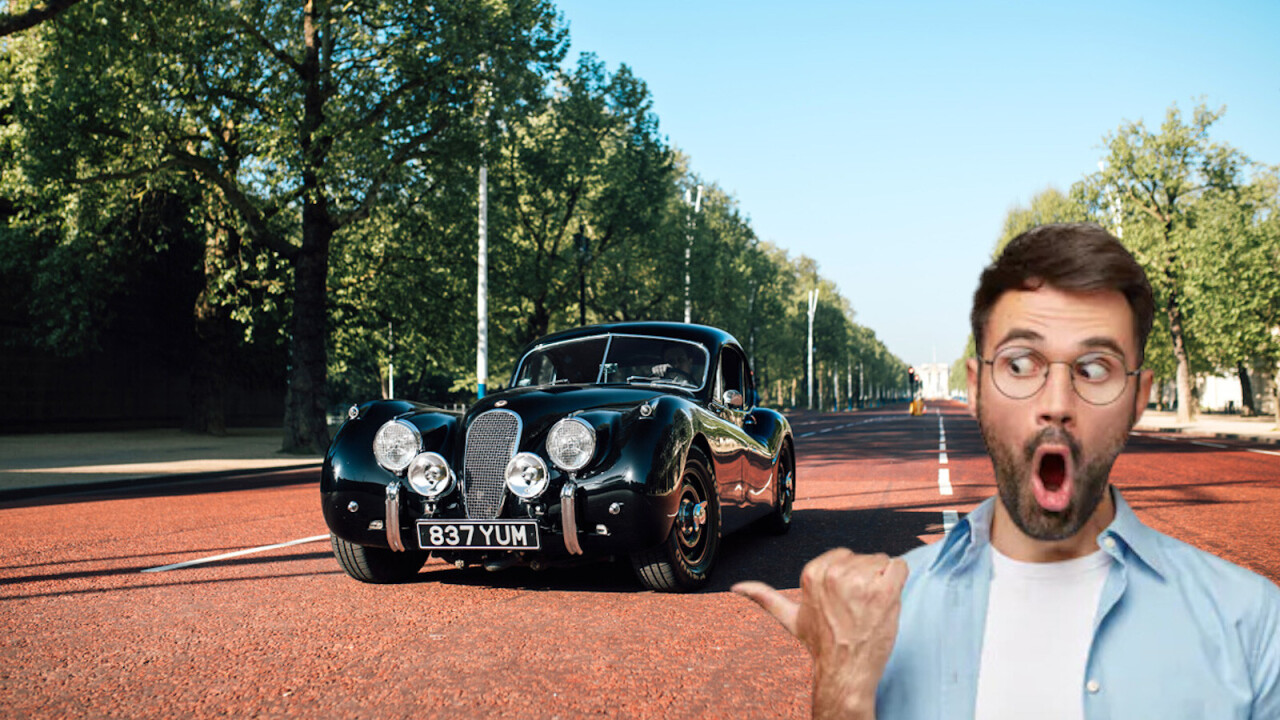
Cars of the future are almost certainly going to be powered by electricity. We’re not going to have much choice as governments around the world look to ban petrol and diesel powered vehicles in favor of EVs.
On one hand, this is obviously great for the environment, but it makes me a little sad, because most contemporary EVs just sort of feel, the same. They all have bags of torque, accelerate swiftly, are silent, and are just generally a pleasure to drive. But where is the charm, noise, brave styling, and quirks, and intermittent electric faults that give a car character and personality?
[Read: EVs are better for the environment than cars — even when charged by coal-generated electricity]
If you ask me, the styling of modern EVs is bland and uneventful, meh. Color choices are duller than a bag of old nuts and bolts — Tesla has just five colors to choose from, red, black, silver, dark blue, and white, bigger meh.
I’m just so uninspired by what’s available right now. Cars like the Honda-E and Mini E are trying to buck the trend, but I don’t expect these to be as successful as Tesla are in terms of sales, so it seems nothing will change.
Thankfully though, there are companies out there making interesting and exciting EVs by converting classic cars — UK-based EV conversion company Lunaz is one such company.
All other EVs should step aside, because Lunaz is making the perfect electric vehicle, and it’s based on a 1953 Jaguar XK120.
Behold.

Just, look, at, it.
Sure, it looks exactly like a real 1953 Jaguar XK120, because it is. There’s no visual fakery here, Lunaz painstakingly strips the original car back, and restores it piece by piece to bring it up to an as new condition.
Friendly for the planet
But because this is an EV conversion, the old gasoline drivetrain and gearbox are removed, to be replaced with Lunaz’s own proprietary motor, battery packs, uprated suspension, and brakes.
Perhaps that’s the best bit about all this, you’ll have a reliable, superb driving classic car, that you can use every day. You’ll have also saved the world’s scrapheap from another old car too.
Lunaz says its motors are good for power output of up to 700NM of torque (516lb ft) from idle and 375 bhp (380 ps) peak power. In other words, it’ll be far faster than anyone realistically needs it to be. Sure, a Tesla can do zero to 60 in under 3 seconds, but why would you worry about speed when you’ll look so damn good driving this thing?
I’d probably end up driving slower, so I can oggle myself in shop windows as I sashay past.

What’s more, each one is built to order so you can add your own personal flare to the build and have something truly unique. Something that couldn’t be more lacking in the world of modern EVs.
A modern twist
Keeping pace with modernity, the Lunaz XK120 also has regenerative braking to charge its batteries as it coasts along.
Lunaz doesn’t give a specific range for this vehicle, because that largely depends on whether it’s specified with one or two motors, and how many batteries are installed. However, the company does say average real world range for its vehicles comes in at around 250 – 300 miles (483 km).

Honestly though, I wouldn’t mind if it only had 100 miles (161 km) of range. With a car that looks this good, I would welcome the next opportunity to pull up somewhere, put it on charge, and stare at it lovingly as I drink expensive coffee, and leaf through the latest edition of duPont Registry.
That might sound farfetched, but it’s what I’ll be doing if I could afford this XK120. Lunaz’s bespoke EV conversions like the XK120 start at £350,000 ($416,000). This is an item for a very special kind of buyer, in other words, not me.
But I haven’t felt that intense pang of lust and desire for a physical object in quite a while, so at the very least, thank you for that Lunaz. And if the future will see more cars like this, then consider me excited.
H/T – Motor Authority
Get the TNW newsletter
Get the most important tech news in your inbox each week.




